This Landmark Exhibition Examines The Relationship Between Lagos & Peckham
By Something CuratedOpening on 5 July and running until 29 October 2023, the South London Gallery (SLG) will present Lagos, Peckham, Repeat: Pilgrimage to the Lakes. The SLG’s local neighbourhood of Peckham is home to one of the largest Nigerian diaspora communities in the UK and is sometimes referred to as ‘Little Lagos.’ Lagos was a significant port during the trans-Atlantic slave trade until it was annexed by Britain in 1861, beginning the British colonial period. Today, the city is one of the leading commercial and economic centres in Africa. Following Nigeria’s independence in 1960 emigration between Britain and Nigeria steadily increased. This landmark exhibition, co-curated by Folakunle Oshun, founder and director of the Lagos Biennial, will explore themes that connect Lagos and Peckham. Themes explored in the show include transnational exchange, a sense of place, and the contemporary metropolis. The ambitious presentation brings together works by over ten Nigerian and British Nigerian artists, a selection of which Something Curated speaks with to learn more.
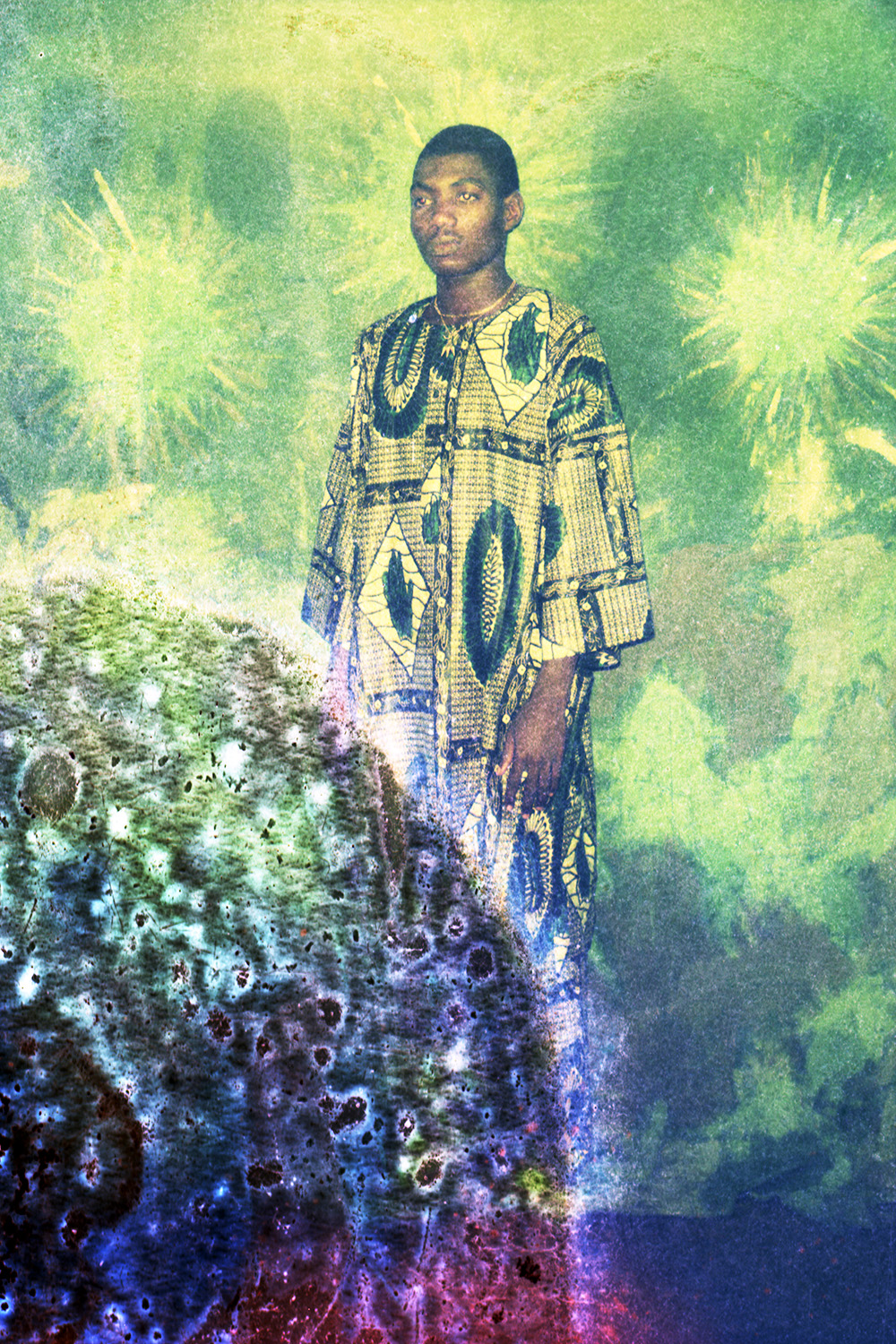
First, Folakunle Oshun, the exhibition’s co-curator, notes: “The exhibition explores the idea of ‘pilgrimage’ as a journey to fulfil a specific ritual or intention; in this case, a quest to find and make a new home—reducing the necessity for return—but equally initiating a cycle of sojourns. In his 1993 publication The Black Atlantic, Paul Gilroy expounds on the theory of double consciousness, initially posited by W.E.B Dubois in The Souls of Black Folk, 1903. Notions of place usually suggest defined geographies as monoliths that can be imagined as origins within contexts of identity and belonging. This migratory loop premised on slavery is anchored on the very basis for which Lagos – meaning Lakes – exists. Christened in the 18th century by the Portuguese after Lagos, a coastal city in the south of Portugal, the city originally known as Èkó had also historically been a West African trade Mecca for centuries, owing to its intricate waterways and access to the Atlantic. In an attempt to capture this double consciousness, the plurality of place, and the rationale behind post-independence migration by Nigerian migrants, the exhibition Lagos, Peckham, Repeat: Pilgrimage to the Lakes will document the experiences of selected Nigerian artists whose practices have been shaped by their personal journeys.”
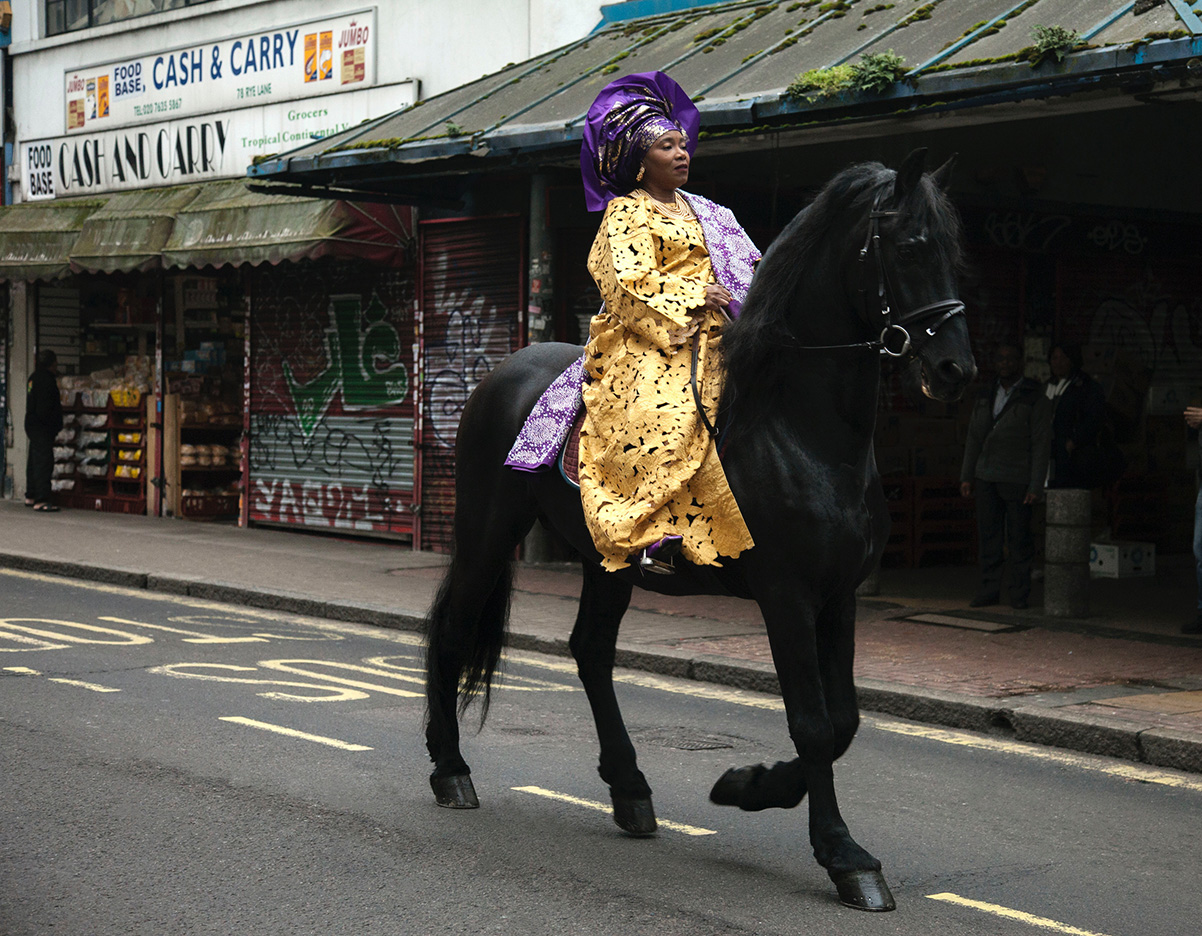
Nigerian born, London raised filmmaker and artist Adeyemi Michael’s work primarily tells stories of resilience, existence, reimagining and transformation of people both in the diaspora and on the African continent. His Yoruba heritage and culture has featured heavily in his work embracing all from the mundane to stories of wonder. Expanding on his work Entitled, 2018, included in the upcoming SLG show, Michael tells Something Curated: “This work was made in response to a feeling of displacement and frustration that my mother was navigating in her personal and professional environment. My mum had been working at an institution for over 25 years and had been overlooked and ill-treated. I saw it as my duty to lift her up and tell the story of the woman I knew and have always known and seen growing up. A woman of great courage who took it upon herself to step out of her comfort zone and leave our country of origin in search of something more for herself but most importantly her family. My mother on horseback dressed in her finest traditional regalia became the image in my mind when researching so called conquerors and drawing the lines of colonial figures and how they were framed when arriving into countries that weren’t their own. Writing a history of our own about how we arrived in the UK and one that we wanted to see underlines the purpose of this work as a reimagining of that immigrant journey.”
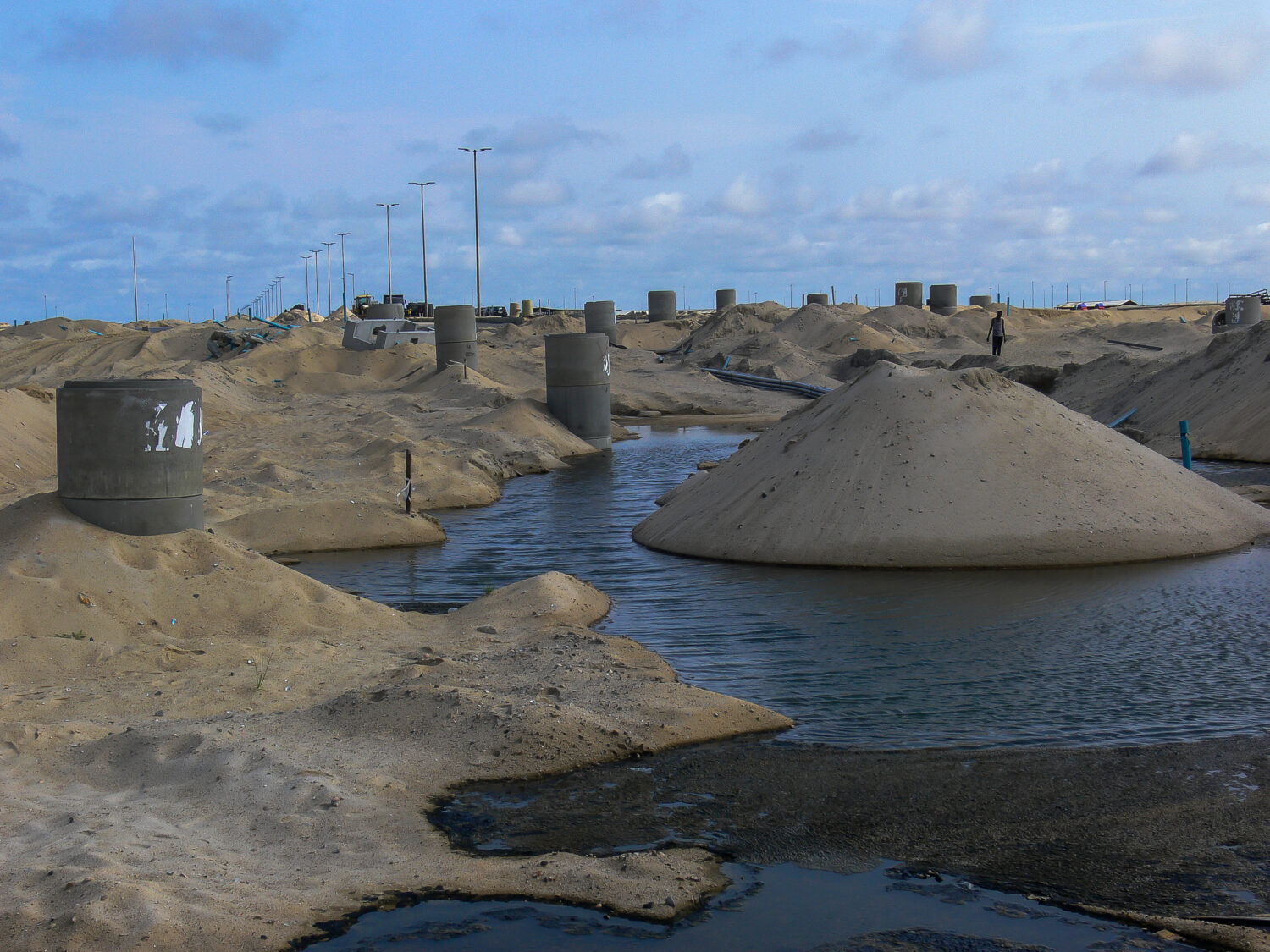
Seyi Adelekun is a multidisciplinary artist and architectural designer with a particular focus on creating installations that reimagine how we can design and inhabit our public spaces using repurposed materials. Her work encourages us to be resourceful and develop a more conscious relationship with pre-existing materials in our built environment. She explains to SC: “My new work Àdìrẹ Waters, 2023 is informed by an appreciation for my Yoruba heritage and its unique artistic and cultural practices. For Lagos, Peckham, Repeat: Pilgrimage to the Lakes, I have created another undulating canopy using recycled plastic bottles, water, and natural dyes. This time my installation draws inspiration from Àdìrẹ (meaning: tie and dye), a traditional Yoruba visual art and textile technique that is admired for its striking patterns and vibrant array of indigo tints and hues. Àdìrẹ design reflects a legacy passed down from mother to daughter, capturing legends, myths and proverbs, and serving as a means to document social, economic, and environmental conditions. With this work, my intention is to highlight the significance of these symbols which have been traditionally employed as storytelling devices.”
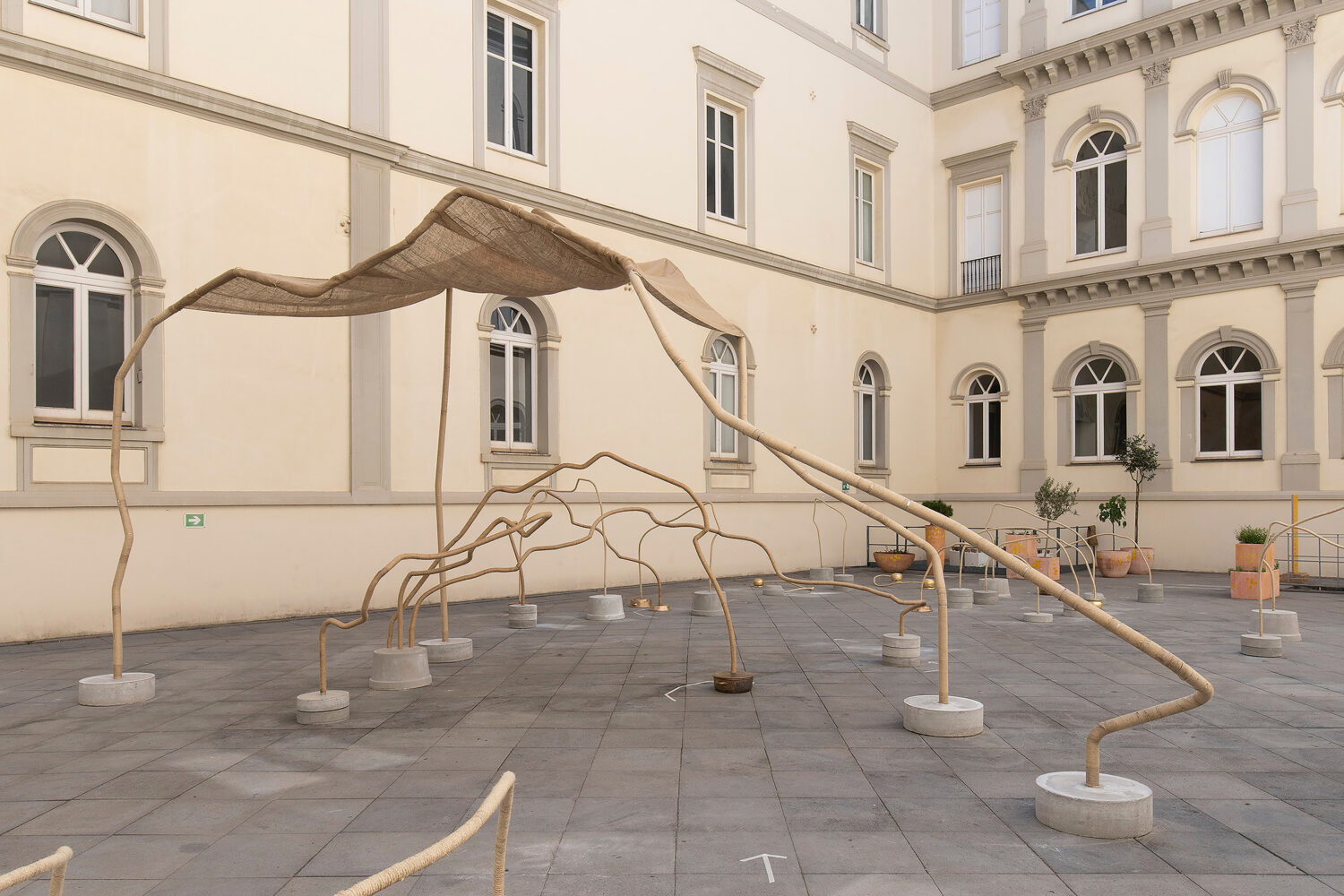
Adelekuncontinues: “Àdìrẹ Waters follows on from Plastic Pavilion, 2019 and uses indigo pigment sourced from dye centres in Abeokuta (Nigeria), alongside a range of natural dyes, to emulate the motifs of Àdìrẹ Oniko. This technique involves tying raffia or thread around the cloth to create resistance patterns before dyeing. The slow alchemy of this natural dyeing process forges an intimate relationship between the Aládìrẹ (a practitioner of this vocational art) and the Elu plant, which, beyond its role in textile dyeing, has long been used in traditional medicine across Africa. In the periods of European colonialism and the trans-Atlantic slave trade, enslaved Africans played a pivotal role in transmitting the knowledge of indigo cultivation, carrying it across the waters to the Americas. This installation honours the sacred power of water – water as memory, as healing, as transformation. It carries forward my ongoing interest in exploring our spiritual bond with water, through customary rituals and ancestral practices, as a way to deeply connect to our local ecology.”
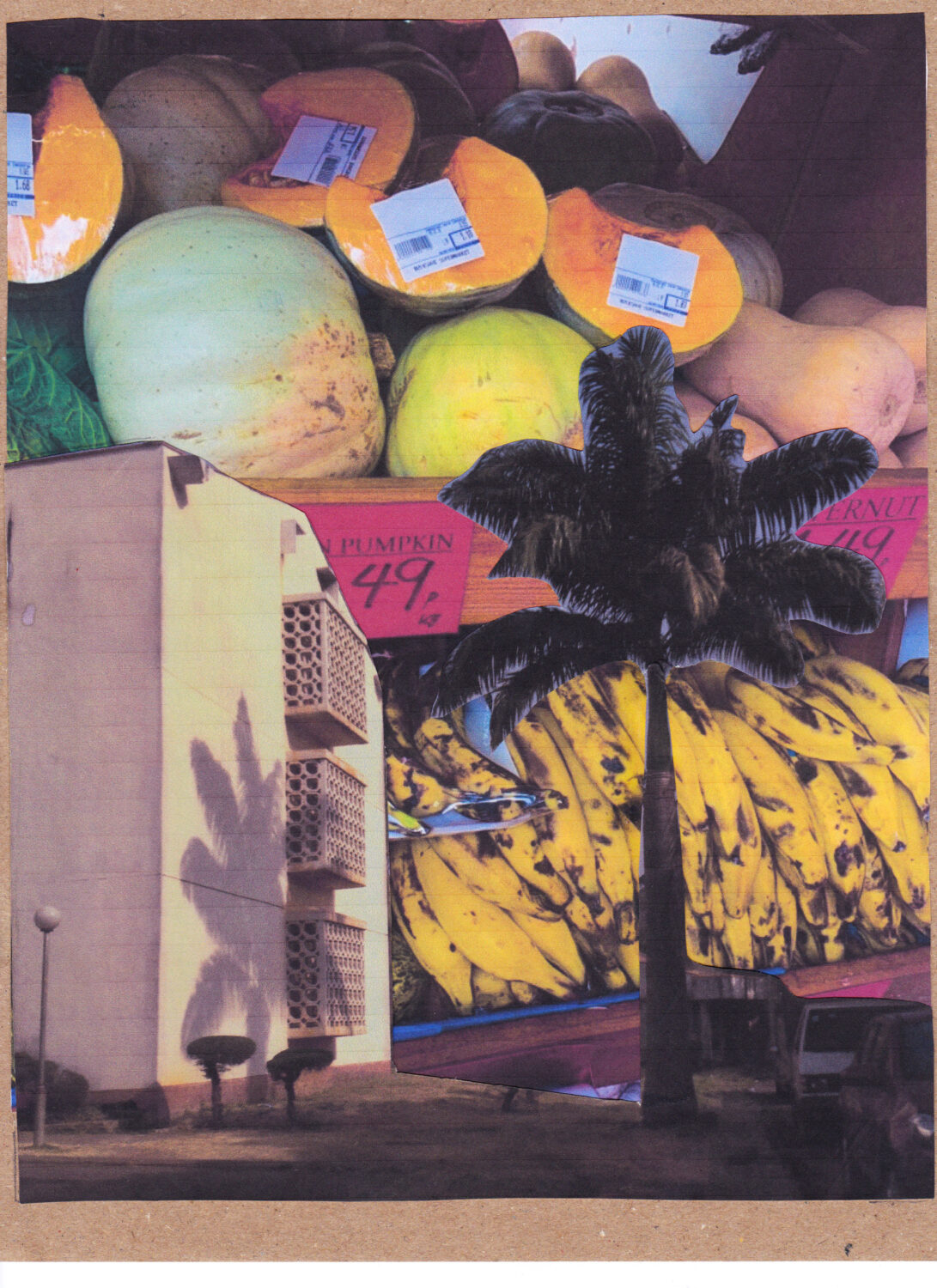
Chiizii is an interdisciplinary artist, designer and researcher, born in London and raised in New York and Igbo. Working largely with but not limited to painting, collage and textile design, her work explores the specificities of Igbo, Nigerian and African experiences and histories. Chiizii says to SC: “My new work forms part of a body of research titled Nni Bu Ogwu which means ‘Food is Medicine’ in Igbo. Nni Bu Ogwu examines pre and post-colonial Igbo diets, and asks the questions: How have Igbos used art to exchange food information? How can art be used as an accessible tool for nutritional and educational enrichment? The work is displayed as a research room and includes multimedia works I’ve created (drawing, painting, collage, sound and textiles), which inform how I will produce Chapter 1, Piece 1. The research room concept was produced when I was on residency in Lagos at Guest Art Space (G.A.S). During the residency I noted the impact of Igbo people on Lagos culture where the majority of the population is of Yoruba ethnicity. This work presents years of my research on elements key to Igbo identity. There are three chapters within this research project. Chapter 1 introduces the who and why, Chapter 2 explains what I’ve learnt about Igbo food culture through this study, and Chapter 3 asks where do we go with this information. Chapter 1, Piece 1 provides the introduction to Igbo people and some key elements of our culture.”
Feature image: Adeyemi Michael, Entitled (still), 2018. Courtesy of the artist.